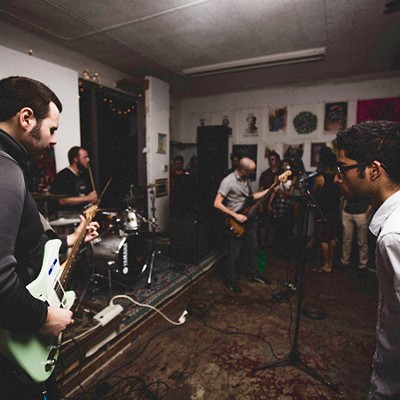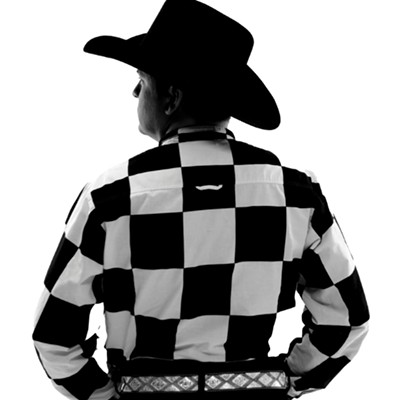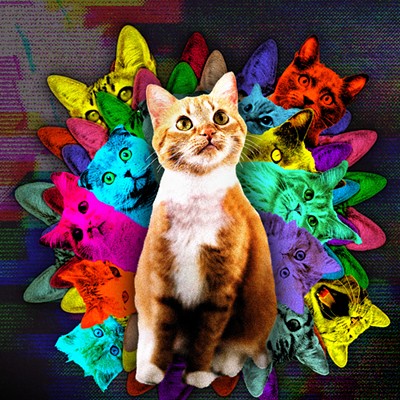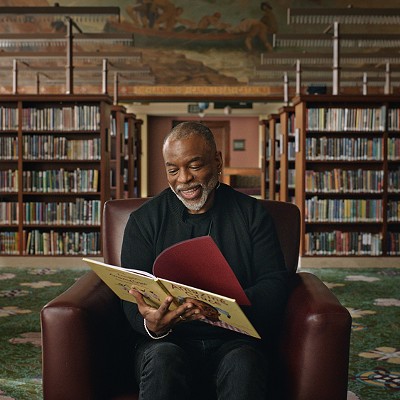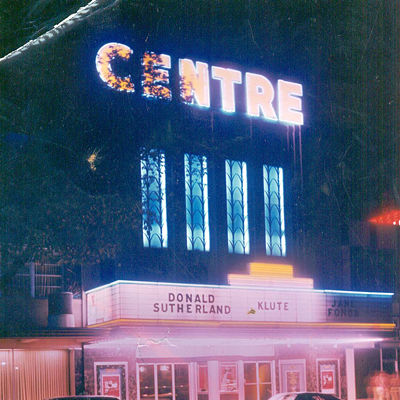To grow into normal human beings, we need reference groups during childhood. Whether it's a church, a family or a circle of school friends, these points give one the ability to develop a solid, consistent identity. In the absence of such a social education, one turns inward for behavioral cues, creating a cracked-mirror personality that operates only within its own context of acceptability.
"The Brothers Bloom" is about people who grew up with no anchors to the world, and so they invented their own symmetrical, though warped, patterns of personal myth and identity. Unfortunately, when one establishes a world within the world, the construct is always rickety, and collapse is imminent.
The titular brothers are Stephen (Mark Ruffalo, "Blindness") and Bloom (Adrian Brody, "Cadillac Records"), a pair of orphans who, as children, carried their outsider mentality from foster home to foster home. Over time, the brothers developed a rather inverted strategy for dealing with whatever local populace they happen to be among: Elder Stephen writes out a confidence scam in a series of squares, creating an identity for the painfully shy Bloom in the process.
This has the twofold effect of freeing Bloom from his own self-doubt and eventually alienating the pair from their victims. This meets the siblings' short-term need for interaction and their long-term need to remain outside of society (that's where they wanna be).
Fast-forward 25 years. Stephen and Bloom have continued the same pattern of bait, switch and move into their 30s. They crossed out of the Unites States long ago, attending con man grad school in St. Petersburg with a Fagin-type figure named Diamond Dog (Maximilian Schell, "Deep Impact"). For their thesis, Stephen took out one of Diamond Dog's eyes.
CORE PERSONALITY
While Stephen is highly pleased with his career and reputation, Bloom grows increasingly depressed. As the contact man in their cons, Bloom feels he has been playing parts written by Stephen his whole life, which has prevented him from developing a core personality and a strong sense of what's "real." Bloom hides from Stephen in Montenegro, but Stephen, with the help of his "personal secretary and private masseuse," Bang Bang (Rinko Kikuchi, "Babel"), Stephen tracks him down and talks him into one more job.
The mark is another orphan, Penelope Stamp (Rachel Weisz, "Definitely, Maybe"). When her parents died, she inherited a massive estate in New Jersey and an undisclosed personal fortune. Left on her own, Penelope has become socially awkward, spending all her time "collecting hobbies." Stephen comes up with a plan and throws "? literally "? Bloom into contact with her.
The plan involves Penelope coming with the group to Europe, where they meet a mysterious Belgian called The Curator (Robbie Coltrane, "Harry Potter and the Order of the Phoenix"). The con involves smuggling an ancient prayer book out of Prague to shady Argentineans in Mexico, with many stops along the way. Penelope is fleeced out of a million dollars, and Bloom breaks the No. 1 rule in the con game: Don't fall for the mark.
It's difficult to understand, much less map, all the twists and turns taken by the plot, but it goes on well after the initial story arc has resolved itself. The point seems to be that trying to impose symmetry on a decidedly asymmetrical world is a noble goal, but it rarely works out the way you want it to.
The players have all adopted as their couture of exclusion the trappings of Charlie Chaplin's Little Tramp, sporting dark suits, striped ties and bowler hats. This peculiar stylization, along with the rampant personality quirks, lends a wacky Wes Anderson-esque hipster vibe, which is expanded by the larger-than-life Continental personalities of The Curator and Diamond Dog.
Thematically, "The Brothers Bloom" is less hip, seeming to borrow equally from "Dirty Rotten Scoundrels" and "Slumdog Millionaire" in the way it addresses the nature of con artists and brotherly love.
Overall, the story is a bit messy, and the form reflects a bit too closely the theme of confusion and uncertainty about what's really going on and who's really doing what. On the other hand, Brody, Ruffalo, Weisz and Kikuchi create an entertaining chemistry, and there are plenty of funny parts.
But when things get serious at the end, the intended impact just isn't there. Everyone spent so much time doing card tricks and making offbeat observations during the rest of the movie that when reality comes crashing down, it seems more like the characters deserve it than like a tragedy.
"?Mike Robertson

